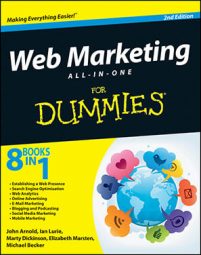As a web marketer, one of most complex aspects of pay per click (PPC) management is bid management. Most search engines require you to set your bids when you set up an ad group.
Bids are set at two levels:
Ad-group level: At the ad-group level, you must set a maximum bid — the largest amount that you’re willing to pay for a single click. You may not pay that actual amount, but be prepared to do so.
Keyword level: A keyword-level bid is the maximum CPC you’re willing to pay for that single keyword.
By default, all keywords receive the ad group’s maximum CPC. If necessary, you can change the amount you’re bidding on a single keyword.
Know how CPC is determined
Cost per click (CPC) is determined by the search engines based on their own algorithms. These algorithms calculate various factors to determine the minimum bid for a given keyword, the smallest amount that the search engine will charge for that keyword, and the rate you pay for it.
Search engines keep their algorithms as closely guarded secrets so that advertisers can’t exploit or cheat the system. Google and MSN, however, use several known factors to calculate CPC:
Relevancy of the keyword to your ad
Relevancy of the search query to your keyword
Destination URL (where the ad takes the searcher)
Daily budget amount
Keyword bid amount
Amount of competition
Relevancy of the competitors for that keyword compared with you
Quality score, which is awarded by the search engine
How to decide what to bid
When you select your keywords or use keyword tools to add new ones, most search engines show you an estimated number of searches, CPC, and cost per day for each keyword. Those estimates are valuable tools for determining your maximum CPC.
A best practice in setting a maximum bid for an ad group is to start high and lower that bid as necessary. This practice gives you a running start with the search engine. Your ad will appear quickly and often, giving you results much sooner than if you start low and try to work your way up.
This technique also places your ads in good positions on the results page; a higher position on the page means increased visibility to searchers.

